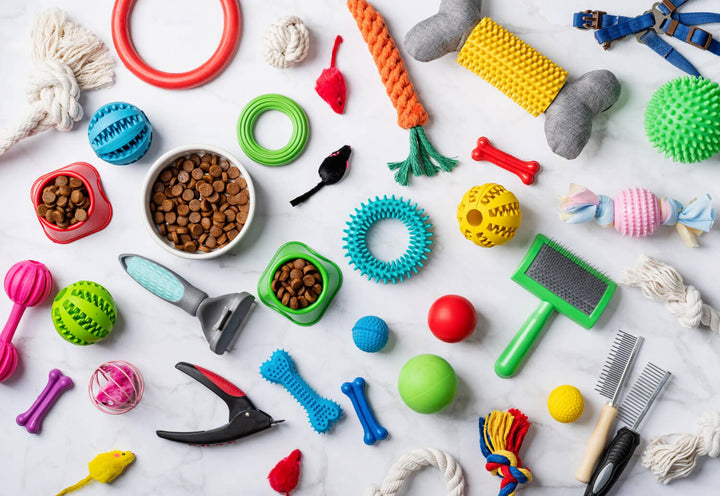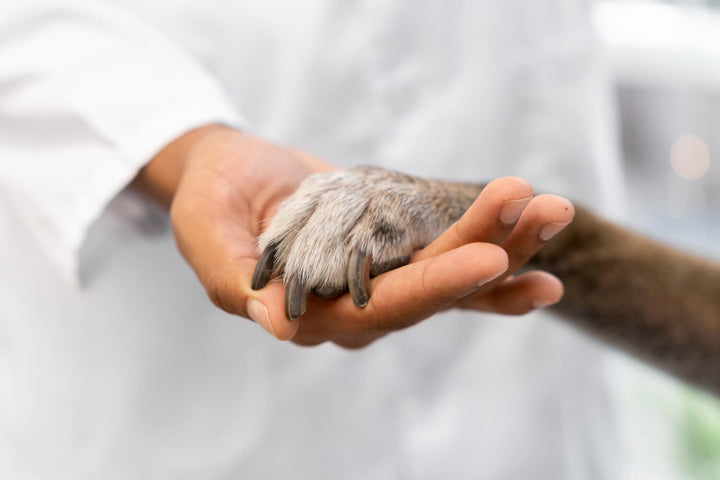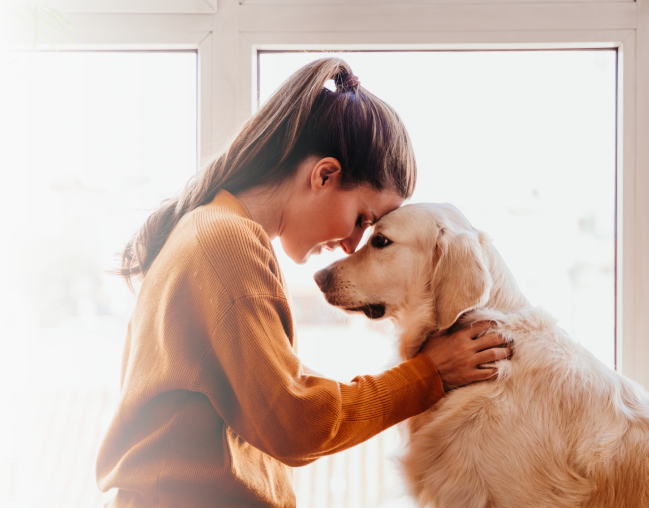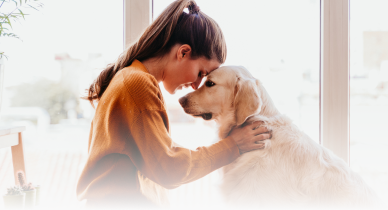The Dalmatian, often associated with firehouses and the silver screen, has a rich history and a versatile skill set. Originating from the region of Dalmatia in Croatia, they have served as hunting dogs, firehouse mascots, and loyal family companions. Their sleek, athletic build hints at their endurance and agility.
Did You Know these Facts about the Dalmatian?
-
Dalmatians have an ancient lineage, with depictions found in Egyptian tombs dating back to 2000 B.C. Their exact origin remains a subject of debate, but they've been present throughout history.
-
Dalmatians became synonymous with firehouses during the era of horse-drawn fire carriages. These dogs would run alongside the horses, helping to clear the way and calm the horses during emergencies.
-
Dalmatians are known for their versatility. They excel in various roles, including circus performers, hunting dogs, and therapy animals, showcasing their intelligence and adaptability.
-
Dalmatians are born completely white and develop their spots as they grow older. Each dog's pattern is unique, much like a fingerprint.
- Dalmatians have a unique sensitivity to certain foods and can be prone to urinary stones. Their dietary needs are a critical aspect of their care.
Dalmatians hold a notable place in the world of purebred dogs; ranking in the AKC's popularity list at number 49. Their iconic appearance and charming personalities have earned them a steady level of popularity over the years.

Traits of the Dalmatian Breed
Overall Personality. Dalmatians are known for their exuberance and high energy levels. They are often described as outgoing, friendly, and eager to please. However, they can be independent and occasionally stubborn, so early training and socialization are crucial.
Family Life. Dalmatians can make wonderful family pets. They are affectionate and tend to form strong bonds with their human families. However, their boundless energy may require an active family to keep up with them.
Physical Appearance. The Dalmatian's most distinctive feature is its coat, covered in black or liver-colored spots. Their sleek, muscular bodies suggest athleticism and agility. Their ears are set high and are naturally floppy.
Sociability. These dogs thrive on social interaction. They enjoy being part of the family activities and can be sociable with other dogs when properly introduced. However, they can be reserved around strangers, making them excellent watchdogs.
Average Sizes & Life Expectancy
- Height: 22 to 24 inches tall (56 to 61 cm)
- Weight: 45 to 70 pounds (20 to 32 kg)
- Life Expectancy: Around 10 to 13 years
Detailed Description of the Dalmatian Breed
Physical Appearance. Dalmatians have a sleek, athletic build that hints at their agility and endurance. Their distinctive spots develop as they mature, creating a unique pattern for each dog, much like a human fingerprint. Their eyes are round and expressive, while their ears are set high and naturally droop.
One of their most iconic features is their long, elegant tail, which tapers to a gentle curve. Dalmatians have a crisp, white coat adorned with evenly spaced spots that can be either black or liver-colored. These spots are a defining characteristic and often the first thing people notice about the breed.
Temperament and Personality. Dalmatians are known for their outgoing and friendly personalities. They have an inherent zest for life and approach every day with enthusiasm. This breed loves to be the center of attention and often forms strong bonds with their human companions.
However, they can be independent thinkers, occasionally displaying stubbornness. Early training and socialization are crucial to harness their intelligence and energy effectively. Dalmatians thrive on regular exercise, both physical and mental, to keep their active minds engaged.
Adaptability. Dalmatians are adaptable dogs but thrive in environments that provide ample opportunities for exercise and mental stimulation. They are well-suited for families with active lifestyles, as they enjoy participating in various activities, from hiking to agility training.
Due to their short coats, Dalmatians may be more sensitive to extreme weather conditions. In cold weather, they may require a coat to keep warm, while in hot weather, they should have access to shade and water to prevent overheating.
Dalmatians can make excellent family pets when matched with the right household. Families with children who are active and enjoy outdoor activities will find a perfect companion in a Dalmatian. These dogs love to play and are generally good with children when properly socialized.
However, due to their exuberance, Dalmatians may not be the best choice for families with very young children who may not be able to handle their energy. It's important to supervise interactions between dogs and young children to ensure a positive experience for both.
Care Guidelines. Proper care for a Dalmatian involves meeting their unique dietary needs. This breed is known for its sensitivity to certain foods, which can lead to urinary stones. Feeding a well-balanced, high-quality diet and providing access to fresh water is essential to their health.
Additionally, regular exercise is a must. Dalmatians enjoy daily walks, runs, and active play sessions to expend their energy and maintain a healthy weight. Mental stimulation through puzzle toys and training activities also keeps their minds sharp.
Training Strategies. Dalmatians respond well to positive reinforcement training methods. Reward-based training, using treats or praise, can motivate them to learn commands and behaviors. Early socialization with other dogs and people is crucial to ensure they grow up to be well-adjusted adults.
Due to their tendency to be strong-willed, consistent training is necessary. A firm yet gentle approach helps establish boundaries and reinforce good behavior. Dalmatians thrive when engaged in activities that challenge their intellect, such as agility training or puzzle-solving games.
Notable in History and Pop Culture. Dalmatians have a rich history, with evidence of their existence dating back to ancient civilizations. Their exact origin remains debated, but they've been used as hunting dogs, carriage dogs, and firehouse mascots throughout history.
Perhaps their most famous association is with the Disney movie "101 Dalmatians," where the breed gained worldwide recognition. The animated and live-action adaptations of the story have further solidified their place in pop culture.
In the real world, Dalmatians have served as firehouse mascots, running alongside horse-drawn fire carriages and guarding the horses while firefighters battled blazes. This historical connection still resonates with many people today.
What to expect when living with the Dalmatian Breed
Personality. Dalmatians are known for their vivacious and outgoing personalities. They are often described as clownish, as they love to make people laugh with their playful antics. This breed thrives on human companionship and craves attention. They form strong bonds with their families and are loyal to the core.
However, Dalmatians are also independent thinkers. While their intelligence is an asset, it can lead to stubbornness. Early and consistent training is essential to channel their intelligence effectively. Positive reinforcement techniques work wonders with this breed, as they respond well to rewards and praise.
Ideal Environment. Dalmatians are high-energy dogs and thrive in environments that cater to their active nature. They adore outdoor activities, such as long walks, hikes, and playtime in a securely fenced yard. Regular exercise is a must to prevent boredom and destructive behavior.
Apartment living is possible with Dalmatians, but it requires dedication to their exercise needs. They need daily physical and mental stimulation to stay happy and healthy. Be prepared for brisk walks and engaging play sessions.
Due to their short coats, Dalmatians can be sensitive to extreme weather conditions. In cold weather, they may need a coat to stay warm, and in hot weather, they should have access to shade and water to prevent overheating.
Maintenance Level. Dalmatians have short, sleek coats that are relatively low-maintenance in terms of grooming. Regular brushing helps keep their coat healthy and minimizes shedding. However, they do shed year-round, so be prepared for some fur around your home.
One notable consideration for Dalmatians is their dietary needs. They have a unique uric acid metabolism, making them prone to forming urinary stones. To prevent this, it's essential to feed them a well-balanced diet and provide access to fresh water at all times.
Overall Health Expectations and Best Health Tests for the Dalmatian Breed
Health Considerations. Dalmatians are generally healthy dogs, but they can be prone to certain genetic conditions. Deafness is relatively common in the breed, with about 30% of Dalmatians being affected by it. It's advisable to have a hearing test done when your Dalmatian is still a puppy.
Another health concern is urinary stones. These can be prevented through diet and proper hydration.
Recommended Health Tests. Regular check-ups with a veterinarian are crucial to monitor your Dalmatian's overall health and address any potential issues promptly. When acquiring a Dalmatian puppy, it's essential to choose a reputable breeder who screens their breeding dogs for genetic conditions. Health tests, including hearing tests, can help ensure that your puppy is healthy from the start.
Best Nutrition, Diet & Supplements for the Dalmatian Breed
Nutrition and Diet. Dalmatians have a genetic predisposition to forming urinary stones. This is due to their unique uric acid metabolism. To prevent stone formation, it's crucial to feed them a diet that minimizes purine intake. Purines are compounds found in various foods, and when broken down, they can lead to the formation of urate crystals.
High-purine foods to avoid include organ meats like liver, certain fish (such as mackerel and sardines), and some legumes. Instead, opt for high-quality commercial dog food specially formulated for Dalmatians or low-purine homemade diets. These diets contain controlled levels of purines to reduce the risk of stone formation.
Dalmatians are also prone to obesity, which can exacerbate their risk of urinary stone formation. Maintaining a healthy weight is crucial. Monitor their calorie intake and provide regular exercise to prevent excessive weight gain.
Hydration is Key. Adequate hydration is essential for Dalmatians. Encourage your dog to drink plenty of water, as this helps dilute their urine and reduce the concentration of urates. Always provide fresh, clean water, and consider adding water to their dry food to increase fluid intake.
Supplements. While Dalmatians can receive essential nutrients from a balanced diet, some supplements can support their overall health. Omega-3 fatty acids, such as fish oil, can help maintain healthy skin and coat. Additionally, consider supplements like glucosamine and chondroitin to support joint health, as Dalmatians can be prone to hip dysplasia.
Foods to Avoid. Certain foods can be harmful to Dalmatians. As mentioned, high-purine foods like organ meats should be avoided. Additionally, foods that are high in oxalates, such as spinach and beet greens, can contribute to stone formation and should be limited.
Grooming Requirements for the Dalmatian Breed
Coat Maintenance and Shedding. Dalmatians have short, dense coats that shed throughout the year. While their coat is relatively low-maintenance, frequent brushing helps remove loose hair and reduce shedding. Aim for at least a weekly brushing session to keep their coat in good condition.
Paw Care and Hygiene. Dalmatians are active dogs, and their paw pads can take a beating. Regularly inspect their paws for cuts, scrapes, or foreign objects. Keep the hair between their toes trimmed to prevent matting and discomfort. Regular nail trimming is essential for Dalmatians. Overgrown nails can cause discomfort and affect their gait. Trim their nails every few weeks or as needed, ensuring you don't cut too close to the quick.
Ear Care. Dalmatians are prone to ear infections due to their unique ear shape, which limits airflow. Check their ears regularly for signs of redness, odor, or discharge. Clean them gently with a dog-specific ear cleaner as recommended by your veterinarian.
Bathing Frequency. Dalmatians are generally clean dogs with minimal doggy odor. However, occasional baths are still necessary to keep them fresh and clean. Use a mild dog shampoo to prevent skin irritation and dryness. Over-bathing can strip their coat of essential oils, so limit baths to every few months or as needed.
Exercise Required for the Dalmatian Breed
Dalmatians are high-energy dogs that require regular exercise to stay happy and healthy. Engage in activities that challenge their physical and mental abilities. Daily walks, jogging, and playtime in a secure, fenced yard are ideal.
Dalmatians are intelligent dogs that thrive on mental stimulation. Puzzle toys, interactive games, and obedience training can keep their minds sharp and prevent boredom-related behaviors like excessive barking or digging.
Early socialization is crucial to prevent any potential shyness or aggression in Dalmatians. Expose them to various people, animals, and environments during puppyhood to ensure they grow up to be well-rounded and confident dogs.
Training Tips for the Dalmatian Breed
Training Dalmatians can be both enjoyable and challenging due to their strong-willed nature.
Do…
- Use positive reinforcement techniques like treats, praise, and play to motivate and reward good behavior.
- Begin socializing your Dalmatian puppy early to ensure they are well-adjusted and comfortable around other dogs and people.
- Be consistent with commands and expectations.
-
Dalmatians can be stubborn, so patience is key. Keep training sessions short and engaging.
Don't…
- Use physical punishments or yelling as it can damage the trust between you and your dog.
- Skip training; consistency is vital. Skipping training sessions can lead to behavioral issues.
- Forget about mental and physical health. Dalmatians require both mental and physical stimulation, so neglecting exercise can lead to boredom and destructive behavior.
The Dalmatian Breed is Suitable For
Dalmatians are known for their boundless energy and love for exercise. They thrive in homes with ample space, ideally with a secure, fenced yard where they can run and play freely. Active families and individuals who enjoy outdoor activities like jogging or hiking are well-suited for Dalmatians.
Dalmatians are often great with children. They have a playful and affectionate nature, making them suitable companions for families. However, their high energy level may be overwhelming for very young children, so supervision during interactions is essential.
Dalmatians can coexist with other pets, but early socialization is vital. They have a strong prey drive, so introducing them to smaller animals, like cats or rabbits, should be done gradually and under supervision. Proper training can help them get along well with other pets.
The Dalmatian Breed is Not Suitable For
Due to their need for regular exercise and tendency to be vocal when bored, Dalmatians are generally not well-suited for apartment living. They may become restless and exhibit destructive behavior in confined spaces.
Dalmatians require experienced owners who can provide consistent training and meet their exercise needs. Novice dog owners may find their high energy level and strong-willed nature challenging to manage.
Famous Dalmatian Owners
-
Walt Disney - The legendary founder of Disney, Walt Disney, had a special affinity for Dalmatians. His famous animated movie, "101 Dalmatians," released in 1961, featured the lovable Dalmatian couple, Pongo and Perdita, and their adorable puppies. This movie significantly contributed to the breed's popularity.
-
Regina King - The award-winning actress Regina King is a proud Dalmatian owner. Her Dalmatian, Cornbread, has accompanied her to red carpet events and has become something of a celebrity himself.
- Cruella de Vil - While not a real person, the fictional character Cruella de Vil from Dodie Smith's novel "The Hundred and One Dalmatians" and Disney's adaptation is perhaps the most notorious Dalmatian enthusiast. Although she's portrayed as a villain with a penchant for turning Dalmatian puppies into fur coats, her character has become iconic in popular culture.
Accomplishments of the Dalmatian Breed
Dalmatians have made their mark in various forms of pop culture.
Besides "101 Dalmatians," Dalmatians have appeared in other films like "The Incredible Journey" and "Firehouse Dog," adding to their on-screen presence.
Dalmatians have historical ties to firehouses, where they were used as mascots and to accompany horse-drawn fire carriages. Their legacy in the fire service is celebrated to this day.
Dalmatians have been adopted as mascots by several sports teams and organizations, symbolizing qualities like loyalty, bravery, and agility.
In summary, Dalmatians are best suited for homes with plenty of space and active families or individuals who can meet their exercise needs. While they can be good with children and other pets, early socialization is crucial. Famous Dalmatian owners include Walt Disney and actress Regina King. The breed's notable presence in movies, firefighting history, and as mascots contributes to their enduring popularity and recognition in pop culture.

The History of the Dalmatian Breed
Creation and Purpose. The exact origin of the Dalmatian remains a subject of debate. Some believe they hail from Dalmatia, a region in modern-day Croatia, while others argue for their origins in India or Egypt. However, their name is undoubtedly linked to Dalmatia.
Dalmatians were bred for a multitude of purposes, each reflecting their unique skills and attributes. Initially, they were carriage dogs, trotting alongside horse-drawn carriages as they transported passengers and goods. Their striking appearance, combined with their agility and endurance, made them ideal for this role. Dalmatians also proved to be excellent guard dogs, with their distinctive appearance serving as a deterrent to potential intruders.
Perhaps one of the most iconic associations with Dalmatians is their role in firehouses. In the 19th century, they became fixtures in firehouses, riding on horse-drawn fire carriages. Their presence had a practical aspect - they helped clear the way for the horses and guarded equipment during stops. Moreover, their loyal and affable nature boosted the morale of firefighters.
Early Roles and Evolution. Over time, the purpose of Dalmatians shifted with technological advancements. As horse-drawn carriages gave way to motorized vehicles, the breed's role as carriage dogs diminished. However, their popularity as mascots and family pets surged.
Dalmatians made a significant impact on pop culture through literature and movies. Dodie Smith's novel "The Hundred and One Dalmatians" introduced the world to the sinister character Cruella de Vil, who sought Dalmatian puppies for their spots, which she wanted to use to make into coats. The novel later inspired Disney's animated movie "101 Dalmatians," bringing the breed to a global audience.
Changes and Modern Impact. Today, Dalmatians are primarily cherished as family pets. They retain their distinctive black spots on a white coat, making them instantly recognizable. Their high energy levels and playful disposition mean they thrive in active households where they can enjoy exercise and playtime.
While their historical roles have evolved, Dalmatians continue to captivate hearts with their unique charm and appearance. Their journey through history, from carriage dogs to firehouse companions and beloved family pets, reflects their enduring appeal and adaptability.
The Dalmatian Breed Standard
The Dalmatian's formal breed standard, as defined by the American Kennel Club, is a detailed description outlining the ideal physical and temperamental qualities expected in this breed. It serves as a guideline for judging Dalmatians in shows and competitions.
According to the AKC's standard, the Dalmatian is a well-balanced, medium-sized dog known for its distinctive black or liver-colored spots. They have a square-shaped build, defined by a strong, muscular body and straight legs. Their expressive eyes are set moderately apart and have an alert and intelligent expression.
The breed standard emphasizes the importance of spots, which should be round and well-distributed. A well-defined border between the spots is preferred. The coat is short, dense, and sleek, providing a polished appearance.
Dalmatians have distinctive high-set, medium-sized ears that taper to a rounded point. Their tail is carried with a slight upward curve and tapers to a point. The ideal Dalmatian's gait is smooth, fluid, and coordinated, reflecting their athleticism.
The national breed club for Dalmatians in the United States is the Dalmatian Club of America (DCA). You can find more information about this club, including breed standards, events, and resources, on their official website: Dalmatian Club of America.
General Appearance
Head, Muzzle, Nose. The Dalmatian boasts a well-proportioned head with a distinct stop - the point where the forehead meets the muzzle. Their expressive almond-shaped eyes come in various shades of brown or blue, adding to their charm. Dark, round, and medium-sized eyes are preferred, contributing to their alert and friendly expression. Dalmatians have a strong, straight muzzle of medium length. Their nose is black or liver-colored, depending on the coat color. Black noses are preferred in black-spotted Dalmatians, while liver-spotted ones have liver-colored noses. The lips are clean and fitting snugly together.
Teeth. Dalmatians possess a complete set of strong, white teeth that meet in a scissors bite. Their dental health is essential to maintain, and regular brushing is recommended to prevent any dental issues.
Neck. A Dalmatian's neck is gracefully arched, blending smoothly into the shoulders. It's strong and long enough to allow their head to be carried high with an air of elegance.
Body. Dalmatians have a distinctively athletic and well-muscled body. Their chest is deep and moderately wide, showcasing their endurance and strength. The back is level and short, leading to a well-rounded croup and a slightly sloping rump.
Tail. The Dalmatian's tail is set moderately high and is carried with a slight upward curve. Traditionally, it was docked, but this practice is now largely discouraged in many countries. The natural tail is thick at the base and tapers toward the tip. It should be long enough to reach the hock joint.
Coat. The Dalmatian's coat is short, sleek, and dense. It's characterized by its distinctive black or liver-colored spots on a pure white background. The spots should be well-distributed and distinct, contributing to their unique look.
Size. Dalmatians are a medium-sized breed. On average, males stand between 22 to 24 inches (56 to 61 cm) at the shoulder, while females are slightly smaller, typically ranging from 20 to 22 inches (51 to 56 cm). They exhibit a well-balanced and symmetrical appearance, emphasizing their agility.
Gait. Dalmatians move with a smooth, effortless gait that showcases their athleticism. Their legs move parallel, with good reach in the front and strong drive in the rear. This breed's distinct and efficient gait enables them to cover ground gracefully.
Reputable Breeders
For those seeking a well-bred Dalmatian, there are reputable breeders who prioritize health, temperament, and the breed's standard. Here are a few notable breeders:
Top Shelters for Adoption
Adopting a dog can be a rewarding experience. Here are a few shelters where you might find a Corgi in need of a loving home:
Top 5 Frequently Asked Questions & Answers about the Dalmatian Breed
Are Dalmatians suitable for families with children?
Yes, Dalmatians are generally good with children. They have an affectionate and playful nature. However, early socialization and supervision are crucial to ensure a harmonious relationship between your Dalmatian and children.
Do Dalmatians require a lot of exercise?
Yes, Dalmatians are an active breed that needs regular exercise to stay happy and healthy. Daily walks, playtime, and mental stimulation are essential to prevent boredom.
Are Dalmatians prone to specific health issues?
Dalmatians are prone to urinary stone formation due to a unique metabolic trait. It's important to provide them with a proper diet to reduce this risk. Regular vet check-ups are also essential to monitor their health.
Do Dalmatians shed a lot?
Yes, Dalmatians do shed. They have short, dense coats that shed year-round. However, their shedding is not as heavy as some other breeds. Regular grooming can help manage shedding.
Are Dalmatians easy to train?
Dalmatians are intelligent but can be independent. Consistent and positive reinforcement training methods work best. Early training and socialization are important to ensure they grow up well-behaved.
A Final Tip for Bringing a Dalmatian into Your Life
Bringing a Dalmatian into your life can be a rewarding experience. These dogs are known for their loyalty, playful spirit, and unique appearance. However, they require commitment, both in terms of exercise and socialization. Be prepared to provide them with the physical and mental stimulation they need.
Dalmatians thrive in a loving and active environment. Their spots and distinctive look are sure to attract attention wherever you go. If you're ready for an energetic and loyal companion, a Dalmatian might be the perfect addition to your family. Enjoy the journey of raising this remarkable breed and cherish the moments with your spots-and-all friend!
Valuable Resources for Your Journey to Parenting a Dalmatian
At Felicitails you will find many wonderful services, supplies and guides for your life ahead with a loving pup at your side.

Hope You Enjoyed The Read!
Tag Cloud

A warm welcome from Lindsay & Huck (my English Pointer). Hope you enjoy the read and find just what you are looking for when it comes to living your best life with your loved pets.

-
Dog Breeds
(42)
-
Emotional Support Animals
(10)
-
Dog Grooming
(6)
-
Dog Health
(18)
-
Life with a Dog
(18)
-
Dog Nutrition
(11)
-
Service Animals
(11)
-
Dog Training
(5)






